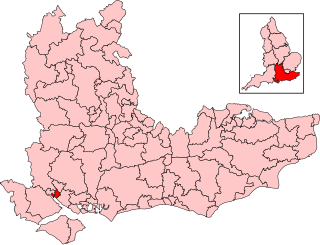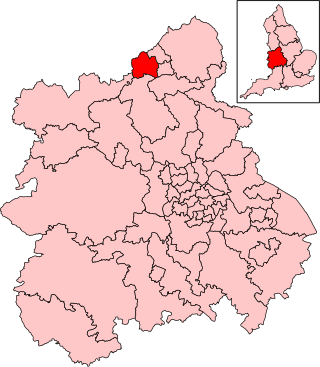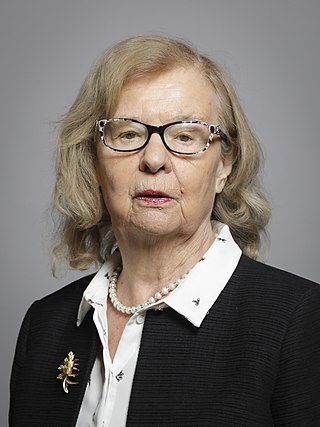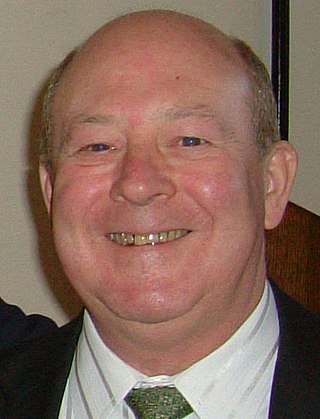Related Research Articles

The 1983 United Kingdom general election was held on Thursday 9 June 1983. It gave the Conservative Party under the leadership of Margaret Thatcher the most decisive election victory since that of the Labour Party in 1945, with a majority of 144 seats and the first of two consecutive landslide victories.

Southampton, Itchen is a constituency represented in the House of Commons of the UK Parliament since 2024 by Darren Paffey from the Labour Party (UK). Before then, it had been held since 2015 by Royston Smith GM of the Conservative Party, who had announced his retirement from frontline politics in 2023 and did not seek re-election in 2024.

Newcastle-under-Lyme is a constituency in northern Staffordshire created in 1354 and represented in the House of Commons of the UK Parliament since 2024 by Adam Jogee of the Labour Party.

Greenwich and Woolwich is a constituency represented in the House of Commons of the UK Parliament since 2015 by Matthew Pennycook of the Labour Party.

The ceremonial county of Cambridgeshire is divided into eight parliamentary constituencies. There is one borough constituency and seven county constituencies, which each elect one Member of Parliament to represent it in the Parliament of the United Kingdom.
The county of Northumberland is divided into 4 parliamentary constituencies, all of which are county constituencies.
The ceremonial county of Shropshire, England, is divided into 5 parliamentary constituencies – 1 borough constituency and 4 county constituencies. As with all constituencies for the House of Commons in the modern age, each constituency elects one Member of Parliament by the first-past-the-post system.
John Douglas Grant was a British politician who served as an MP of the United Kingdom parliament from 1970 to 1983. He was as a member of the Labour Party until he left in 1981 to join the new Social Democratic Party (SDP). He represented Islington East from 1970 to 1974 and Islington Central from 1974 to 1983.

Ian William Wrigglesworth, Baron Wrigglesworth is a Liberal Democrat peer. He served as President of the Liberal Democrats from 1989 to 1990.

Newcastle upon Tyne East was a constituency of the House of Commons of the UK Parliament. It was held by Nick Brown, an independent formerly of the Labour Party, from its recreation in 2010 until its abolition for the 2024 general election.

The 1980 Glasgow Central by-election was a by-election held on 26 June 1980 for the British House of Commons constituency of Glasgow Central, following the death of its sitting MP, Thomas McMillan.

The 1982 Beaconsfield by-election was a parliamentary by-election held on 27 May 1982 for the House of Commons constituency of Beaconsfield in Buckinghamshire.
Two Bootle by-elections were held during 1990, for the House of Commons constituency of Bootle in Merseyside.
The 1985 Brecon and Radnor by-election was a parliamentary by-election held on 4 July 1985 for the House of Commons constituency of Brecon and Radnor.
The Portsmouth South by-election was held on 14 June 1984, following the death of Bonner Pink, the Conservative MP for Portsmouth South.

The 1986 Newcastle-under-Lyme by-election was a parliamentary by-election held on 17 July 1986 for the House of Commons constituency of Newcastle-under-Lyme.

The 1985 Tyne Bridge by-election was a parliamentary by-election held on 5 December 1985 for the British House of Commons constituency of Tyne Bridge.
The 1908 Newcastle-upon-Tyne by-election was a Parliamentary by-election held on 25 September 1908. The constituency returned two Members of Parliament (MP) to the House of Commons of the United Kingdom, elected by the first past the post voting system.

The Social Democratic Party (SDP) was a centrist to centre-left political party in the United Kingdom. The party supported a mixed economy, electoral reform, European integration and a decentralised state while rejecting the possibility of trade unions being overly influential within industrial relations. The SDP officially advocated social democracy, and unofficially for social liberalism as well.
The region of East Midlands is divided into 47 parliamentary constituencies which is made up of 12 borough constituencies and 35 county constituencies. Since the 2024 United Kingdom general election, 29 are represented by Labour MPs, 15 by Conservative MPs, 2 by Reform UK MPs and 1 by an independent MP.
References
- ↑ KSM alumnus account
- ↑ Latymer Upper School website
- ↑ Debrett's biography of Mike Thomas
- ↑ Political resources 1970 general election results Archived 4 June 2012 at the Wayback Machine
- ↑ New Statesman, 'End of the Road for the SDP', 17 October 1987
- ↑ Political resources October 1974 general election results Archived 4 June 2012 at the Wayback Machine
- ↑ The Times, 'Mike Thomas leaves the PLP', 14 February 1981.
- ↑ The Times, 'Liberals hogging the best seats, SDP man says', 24 July 1981
- ↑ Not updated: UK General Election results: June 1983
- ↑ Guardian 27 August 1987 SDP gulf widens
- ↑ New Statesman, 'End of the Road for the SDP', 17 October 1987
- ↑ The Alliance : A Chronology Mark Pack
- ↑ The Times, 'SDP still seeking pre-election pacts with other parties' 19 September 1989
- ↑ Who's Who, 2016 edition
- ↑ Charter 2010 website history
- Times Guide to the House of Commons, 1983*
- Leigh Rayment's Historical List of MPs